#shelby steele
Explore tagged Tumblr posts
Text

“If my benefits come to me primarily as a black and not as an American, then the effect over time is to undermine common society—the common culture and democracy of America. I as a black don't identify with America—America is my enemy. This kind of thinking causes me not to move into the American mainstream. Which correspondingly causes me to fall farther and farther behind. That is the tragedy of that kind of power. That is the tragedy of victimization.” -- Shelby Steele
#Shelby Steele#victimization#victimhood culture#victimhood#affirmative action#racial discrimination#religion is a mental illness
4 notes
·
View notes
Text
Freedom to Think: The Legitimacy of being Morally Unsure
One of the things we robbed ourselves and each other of during these previous turbulent years is the legitimacy of being morally unsure.
We've been, in some social manner, at the mercy of people pushing an all-or-nothing narrative. People who've co-opted ideas like anti-racism and feminism, and conflated them as inseparable from a larger ideology, attached to this or that organization. More narrowly defined, more morally imperative, more politically motivated, and through all this has made it insufferably impossible to have a conversation from the curious view--because the curious view is morally reprehensible in its ignorance and unwillingness to commit to what is proposed to be common sense if you're a good person. It's like, yeah, I have always considered myself proponents of those notions--until you redefined them, took ownership, and insinuated that I no longer had the right to describe myself as such unless I undertake the new tenets of your social ideology.
The backlash is coming in hard, and it's coming from the very groups which the social progressive Left advertised themselves the saviors of, because, as it turns out, people won't tolerate discomfort in their everyday conversations for long. They need room to breath, to think, and to reason, without the stilted judgment of ideologically possessed moralists. And, as it turns out, people don't like being victimized without their consent--or to have talking heads claim to be the advocates of action for their entire group identity, which itself is full of diverse individuals.
#reason#racism#anti-racism#feminism#ideology#critical race theory#crt#ideological possession#moralism#victimization#woke#diversity#white fragility#white superiority#white saviorism#robin d'angelo#ibram x. kendi#kimberle crenshaw#thomas sowell#shelby steele#john mcwhorter#candace owens#amala ekpunobi
3 notes
·
View notes
Text









Clark & his dogs in different media.
#superman#clark kent#krypto#Rusty#Shelby#Hank#Smallville#Adventures of Superboy#krypto the superdog#man of steel#dc league of super pets#Tom Welling#David Corenswet#Superboy#DC Comics#yanick paquette#tim sale#art
47 notes
·
View notes
Text


STEEL MAGNOLIAS - 1989
The walls are banged with sprays of flowers, in my two shades of blush and bashful. A pink carpet specially laid out for my service, and pink silk bunting draped over anything that would stand still.
#steel magnolias#julia roberts#sally field#M'Lynn Eatenton#Shelby Eatenton-Latcherie#gifs#gif#*mine#dailygif#dailyflicks#seeing the play version of this film in gr 12 genuinely changed my life#theatre calgary ily
46 notes
·
View notes
Text

24 notes
·
View notes
Text
I have FINALLY figured out what Benoit Blanc’s accent reminds me of, and it is Julia Roberts playing Shelby Eatenton in Steel Magnolias. Please for the love of god someone track down Daniel Craig and ask him to say “My COLORS are BLUSH and BASHFUL,” I am begging you.
#benoit blanc#benoit blanc’s accent#daniel craig#glass onion#shelby eatenton#julia roberts#steel magnolias
159 notes
·
View notes
Text

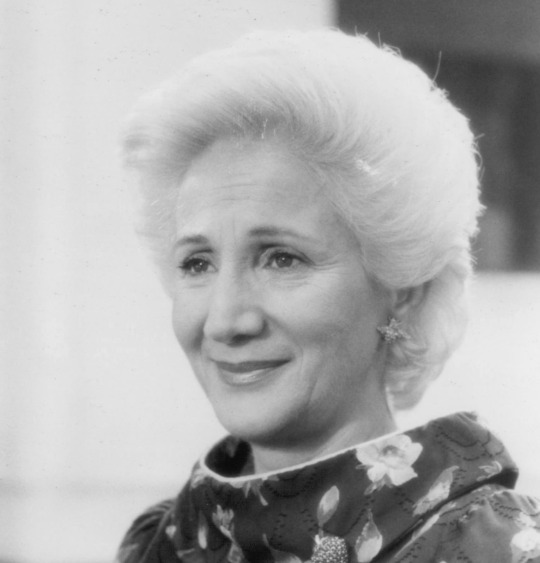
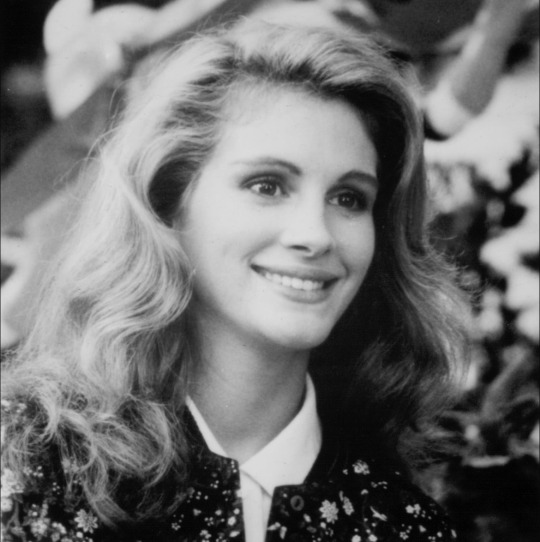
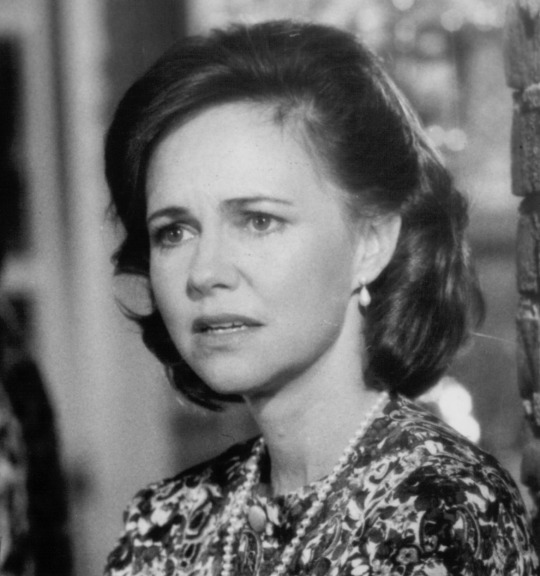
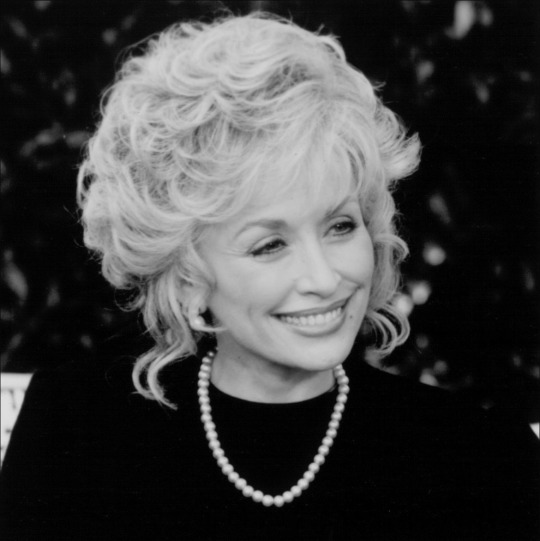
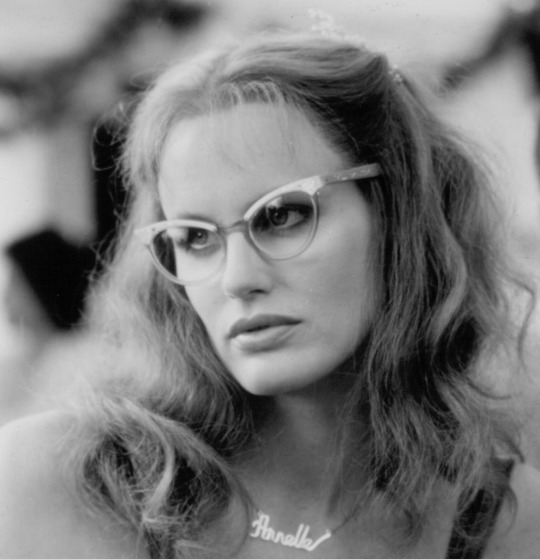
Ladies of Steel Magnolias
#all queued up#fucking queen#favourites#appreciation post#awesome ladies#steel magnolias#m’lynn eatenton#truvy jones#ouiser Boudreaux#annelle dupuy#clairee belcher#Shelby eatenton#sally field#dolly parton#shirley maclaine#olympia dukakis#daryl hannah#julia roberts
38 notes
·
View notes
Note
i literally have distant cousins who named their twin boys flynn and rider bc the mom still had a crush on that rapunzel dude
NAUR... oh my god. at least the names are normal you know, relatively speaking. flynn is and rider is uh less so. I could see adults being named that MAYBE but like. I do not think my old acquaintance's daughter is going to do well with the name silvercandle
#meltysblood#asks#I have met very few people named after a fictional character and it's a normal name. my sister is one of those people#named after shelby from steel magnolias. I refuse to accept my dad's explanation she's named after a car because hello. hi#but no yeah rarely does it work out. ever
8 notes
·
View notes
Text
276 - Spanglish

This week, we are talking about one of the biggest THOB titles that we haven't yet discussed: 2004's Spanglish. James L. Brooks returned nearly a decade after his Oscar success with As Good As It Gets with this story of two disparate families thrust together: an immigrant single mother and the rich Los Angeles family she works for. With Adam Sandler headlining one year after earning his first bout of buzz for Punch-Drunk Love, this looked to be a chance for the Academy to honor him as a serious performer within the Academy-beloved Brooksian seriocomic glow. But the movie... has some issues!
This episode, we talk about Cloris Leachman's stellar boozy performance and Téa Leoni's work tried to wrangle an impossible character. We also discuss Paz Vega as the film's attempted breakthrough performance to American audiences, Brooks' Oscar history, and the many mystery middle names in Hollywood.
Topics also include Mitski fans, the film's cringe-inducing sex scene, and the history of the Tristar logo.
The 2004 Academy Awards
Vulture Movies Fantasy League
Subscribe:
Patreon
Spotify
Apple Podcasts
Google Play
#James L. Brooks#Adam Sandler#Paz Vega#Tea Leoni#Sarah Steele#Cloris Leachman#Shelbie Bruce#AARP Movies for Grownups#SAG Awards#Academy Awards#Golden Globes#Oscars#movies
6 notes
·
View notes
Text
dreams that never come true - pettiot - Peaky Blinders (TV) [Archive of Our Own]
At some point during the S6-E1 four year timeskip, a small slice of life.
Ada Thorne Presents: the Suppressed Desire Ball.
(Tommy might've preferred to be abroad, too. In the absence of drink, the thought of navigating the far-reaching territories of those taffeta skirts might get him through.)
.
Tommy Shelby/Lizzie Stark, Ruby Shelby, Charles Shelby, Various Shelby Household Maids | Fluff (or the Appearance of Fluff), Fancy Dress Party, Family Dynamics, Family Bonding, Domesticity, Foreshadowing, Gendered Dynamics, Class Issues, References to Sigmund Freud, Bittersweet, 1500 Word Flash Fiction
.
#my writing#peaky blinders#tommy x lizzie#ruby shelby#charles shelby#i adore that AO3 has a 'references to sigmund freud' tag#i have mournful headcanons for lizzie and travel#based on lizzie's wistful 'we could be in america' to tommy#his absolutely entrenched englishman-ism#and on diana's mockery of lizzie's stereotypical paris honeymoon comment#also there is a Thing about architects and costume parties#all our balls were costume parties#this was a party theme i found for a 1933 Architectural Association ball#not gonna even pretend i'm not delighted about the number of layers in reading tommy's “suppressed desire” outfit tho#the non-canonic reading: wife's an oceanic metaphor then the husband can be a boatman navigating to foreign or familiar shores; however!#vigorously ignore the canon trauma door of giant solid steel labelled 'do not repeat do not fucking open'#but as tommy says to ada later that night at the party#sometimes an outfit's just a fucking outfit ada
6 notes
·
View notes
Text
#Polls#Pathetic Meow Meow#Tommy Shelby#Will Graham#Roy Mustang#Deadpool#Juno Steel#Klaus Hargreeves#Mikey Milkovich#Mollymauk Tealeaf#poll
15 notes
·
View notes
Text
'Peaky Blinders was conjured out of stories its creator Steven Knight was told as a child. Larger-than-life images from his parents’ Birmingham families had been burnt onto his nine-year-old mind. A mountain of silver coins piled on a table in a shabby terraced house. Bare-knuckle boxers bound at the wrists and pushed into the canal for losing a fight. Gypsy horse fairs. Barefoot children running messages for illegal bookmakers. A pub called The Chain whose only drinkers were factory women who’d beat any man who dared enter. And immaculately dressed gang members who’d swapped the mud of their WWI uniforms for crisp creases and sharp tailoring. It was all magic and glamour, to the mind of a child.
That was how Peaky Blinders chose to present the past on screen – as somewhere heightened, glamorous and now. It wanted to evoke in its viewer the awe of a kid marvelling at unforgettable things. Forget the drudgery of realism, the show’s 1920s Birmingham would be a place where fairy tale kings and queens walked through fiery streets, towered over by pulsating industry and non-stop newness. For once on screen, the British working classes wouldn’t be drab and pitiful, they’d be mythic and cool. As Knight told Den of Geek, “let’s do legends.”
One detail from Knight’s childhood legends, as reported in GQ Magazine, was his father’s memory of seeing the real Peaky Blinders gang dressed to the nines. “Every crease as sharp as the razors in their hats, reflections in their toe caps, dicky bows and ties pulled tight on studded collars.”
Everything about the men projected wealth and status, Knight’s dad told him… apart from the glasses from which they were drinking. These expensively dressed gangsters were knocking back whiskey not from pricey crystal, but recycled jam jars. Knight explains: “The money was in the fibre and the leather of their clothes, in their grooming and their guns. Not a penny of that fortune would be spent on anything so mundane as kitchenware.”
You might say that approach to priorities was shared by Peaky Blinders the show. When it arrived in 2012, what counted was the first impression. The look – as designed by series one director Otto Bathurst and his art teams – was the thing. Forget the mundane, it was all about impact.
No Hovis-Ad Nostalgia
Impact was unarguably made by Peaky Blinders‘ opening sequence, in which Cillian Murphy’s character rides on horseback through the gristly, teeming streets of Birmingham’s Small Heath. Filmed as one long, continuous shot, it introduces Tommy Shelby as a feared and respected local king, the protagonist in a British Western. Just as importantly, it also introduces Peaky Blinders as not-your-average-period-drama. Don’t expect the grateful poor, the kindly gentry and Hovis-ad nostalgia. This place is alive with modernity.
You only have to look at the skyline to see that. Instead of the CGI set extension faithfully recreating what real canal-side inner city Birmingham would have looked like with an historian’s accuracy, director Bathurst chose impact. Bigger. Higher. More impressive. His reference points weren’t archive maps, but Blade Runner and Judge Dredd’s Mega-City One.
Like the gang members drinking from jam jars, the creators of Peaky Blinders faced the question of where best to use their money. As producer Jamie Glazebrook confirms here, in 2012, Peaky Blinders had a budget of around £7.5 million for the entire first series, a snip compared to Game of Thrones $60 million first season, and The Rings of Power’s $450 million season one price tag. Achieving the cinematic look sought by Otto Bathurst and Director of Photography George Steel – both of whom won Baftas for their work on the first series – with a BBC Two purse, would mean sacrificing some things in favour of others.
That opening sequence, DoP George Steel told this Esquire Oral History, sucked up an inordinate amount of Peaky Blinders‘ cash. “We spent all our special equipment budget was spent on that first shot, with the horse and the Russian arm [a crane camera mounted on a car],” says Steel. “Otto was adamant that we shoot it all as one shot and the only way that we could really do it was on a Russian arm, which is £10,000 a day.”
“After that we ended up with very rudimentary equipment, which is why a lot of it looks the way it looks. It has that slightly old fashioned feel, because we didn’t have the money to whizz around on technocranes.”
Location manager Andy Morgan backs Steel up. “The budget for Peaky had pretty much been spent halfway through the series.” Producer Jamie Glazebrook told The BBC Academy Podcast in the early days, “There was a terrible point at the end of the first series where every scene, we kept on saying ‘we can’t do this location, could this happen in the Garrison Pub?’ and Steve [Knight] was like, ‘This is going to become like Coronation Street soon, everything going back to the Garrison!'”
Sometimes, Glazebrook continues, necessity was the mother of invention. At the climax of series one, Knight had written a big action set-piece between the Peaky Blinders and racecourse king Billy Kimber’s gang. “There was going to be a huge gun fight and we just didn’t think we were going to be able to achieve it. Rather than do things in a half-arsed way, it’s better to do fewer things really well than to do lots of stuff badly, so we said to Steve we don’t think was can have a huge gun fight.”
As a solution, Knight wrote the gun fight to the point that both sides were lined up, facing each other and armed, and then – a classic Peaky Blinders twist. Sophie Rundle‘s character Ada Shelby, dressed in widow’s weeds, pushes a baby carriage right into the no-man’s land between the two sides and tells the boys to shut up and listen. They were all in France, they know what happens next, they all know who’ll wear black for them. Fight if they want to, says Ada, but her baby isn’t moving and neither is she. It’s a brilliant dramatic moment, and a better surprise than any expensive action scene could ever have been.
Enter: Tommy Shelby
The opening shot that took such a big chunk out of the first series budget was only four minutes long, but its legacy is inestimable. It’s a masterclass in world-building, and a fitting introduction to a series that would become, without overstatement, iconic.
The opening words spoken on Peaky Blinders aren’t in English, but Cantonese. There’s a panicked exchange among members of a Chinese community. A girl has been summoned, and nobody seems to want to keep the summoner waiting. As Steven Knight’s stage directions say “We might think we are in Shanghai until we see a caption…. BIRMINGHAM, ENGLAND, 1919.”
The first we see of the man on the horse is the shine on his boot, the neat, clean cut of his suit and his closely shaved hair under a Stetson Hatteras flat cap. Women and children scatter as he rides bareback into a slum and stops to pay the Chinese fortune teller in pound notes. The girl performs “the powder trick”, whispering an incantation and blowing a cloud of red dust into the air. It’s a spell to make the horse win a race, whispers a watching kid in awe. “The horse’s name is Monaghan Boy,” says Tommy Shelby, “Kempton 3 o clock Monday. You ladies have a bet yourselves but don’t tell anybody else.” Profitable bookies’ wildfire rumour thus begun, he rides on.
Tommy rides to the opening bars of Nick Cave’s “Red Right Hand” – a song from 75 years further down the century – past iron barges, through a pile of a city, layered and growing, dressed in smoke and fire. He turns down Garrison Lane, its spill of people parting around him. A Jamaican street preacher touches the rim of his hat as Tommy passes, men drink and gamble outside a pub, a trio of blind war veterans troop past and he puts coins in their cup, kids dart around, fires belch, sacks are hauled, locals square up to each other, and two policeman tip their hats in salute with a “Morning Mr Shelby.”
Finally, we see the rider’s face in profile as Nick Cave’s song tells us “He’s a ghost, he’s a god, he’s a man, he’s a guru. You’re one microscopic cog in his catastrophic plan, designed and directed by his red right hand.” A tubular bell clangs, and Peaky Blinders begins. Out of pocket, maybe, but never out of ideas, and never looking back.'
#Peaky Blinders#Tommy Shelby#Nick Cave#“Red Right Hand”#Steven Knight#Cillian Murphy#Jamie Glazebrook#Birmingham#Small Heath#Otto Bathurst#George Steel#Sophie Rundle#Ada Shelby#Billy Kimber#Monaghan Boy
2 notes
·
View notes
Text
This is the only post I will be writing in regards to Wilbur Soot's statement.
It was a shit apology. I'm not going over that. We can analyze it to death but it absolutely reads like the apology of someone who is now represented by some label's legal team. The only thing I'm thankful for is that he did not release text messages between him and Shelby in some attempt to distract people. She doesn't deserve that embarrassment.
But, I really hope you read this, I need you to stop treating this like a party. I need you to stop giving every CC that speaks up about this a hit post or hit tweet by liking it.
Almost none of these people liked a single post of Shelby's or uttered the words "I'm so sorry for what Shelby went through" They waited until it was safe to say something. They waited until they could write a "coming in with a steel chair reply." They waited until they knew it would look good.
They revealed that Wilbur has always been manipulative, a narcissist a bully and mean to his friends. They revealed they've always thought he was a bad person. They've revealed that they don't think he's taking accountability while they stayed silent.
And not just silent for a few days. Some of these people are saying they knew for better for weeks, months, years that he was a horrible person. And they said nothing. They let people spend time and money and energy on a community of a person they knew was dangerous and cruel and they said nothing.
They didn't need Shelby Shubble to come forward and say how bad of a person Wilbur Soot was. They didn't need Shelby's story, if they thought he was a bad person, to not appear in videos with him or be in a group channel with him or mention him on stream or tease content with him or be on Anvil Cards or follow him on all social media platforms.
But they did anyway because, to these content creators, it's better to be silent and let a bad person flourish than cause "drama" online.
These people do not give fuck. I need you all to please take this advice that none of these online creators are worth the time and energy you put into them. You don't know what else they're sitting on. You don't know what they've done. You are lying to yourself, right now, if you think Phil or Tommy or Tubbo or Jack or whoever your current fave is wouldn't have been fine saying nothing if Shelby hadn't spoke first. You're lying to yourself if you think whatever new smp or content creator group you're currently into doesn't have horrible shit that they're all choosing to ignore.
The amount of manipulation required by these content creators to maintain the devotion and investment of their communities is horrific.
Do not trust your mental well being, your comfort, your whatever to these people. Any of them.
2K notes
·
View notes
Text
Shadows and Sunlight - Thomas Shelby x Reader
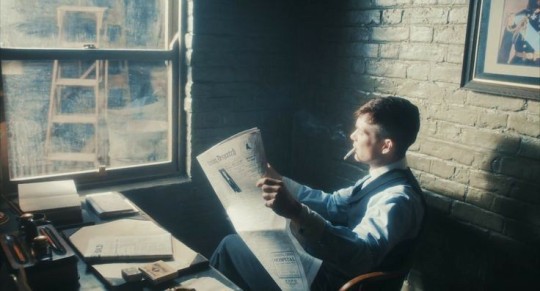
Pairing: Thomas Shelby x Fem! Reader
Summary: In Small Heath, you navigate the challenges of motherhood while your husband, Thomas Shelby, becomes increasingly absorbed in his dangerous world. A tense encounter forces him to confront his priorities, leading to a pivotal change in their family dynamic.
Word Count: 1.4k
A/N: I love Tommy so much that I had to write a fic about him 😭.
It was a quiet night in Small Heath, but inside the Shelby house, the atmosphere was tense.
You looked out the living room window, watching the shadows stretch as the sun set. In your lap, your daughter slept peacefully, her tiny fingers clutching a piece of cloth while a soft smile danced on her face. Listening to the gentle sound of her breathing brought you joy, but also a sadness that was building in your heart.
Thomas, your husband, had been distant. Over the past few months, he had become increasingly absorbed in his business, and the life of crime seemed to be consuming the man you loved. What once was a strong and caring partner was now a shadow, often absent and lost in worries you couldn’t comprehend.
The house, once filled with laughter, now echoed with Thomas's absence.
He had come home late the night before, with the familiar dark look in his eyes. Your little one, only a few months old, was starting to sense the difference in her father. When he wasn’t around, she would cry as if she felt his absence, and that broke your heart.
That night, as you rocked your daughter to sleep, you decided it was time to confront Thomas. The weight of his absence was becoming unbearable, and you could no longer ignore what was happening.
When Thomas finally came home, the moonlight illuminated his tired face. He seemed to carry the world on his shoulders.
“Where have you been?” you asked, trying to hide the worry in your voice.
“Business,” he replied, his voice low and distant.
You saw the internal struggle in his eyes, a mix of anger and pain. It was clear that Thomas was battling invisible demons, but that didn’t absolve him of his responsibilities as a father and husband.
“You can’t keep doing this, Tommy. You’re pushing us away. Your daughter needs you,” your voice faltered, the pain becoming visible.
He closed his eyes, a moment of vulnerability you rarely witnessed. When he opened them, determination was there, but so was a deep sadness.
“I do this for you. To make sure you’re safe,” he murmured, pulling you into a tight embrace.
From that moment on, things didn’t improve.
Thomas grew more reserved, and you found yourself struggling to care for your baby alone, trying to be a strong and loving mother. The emptiness in the house echoed the silence of your life, and you began to fear that Thomas was losing the battle against the world surrounding him.
One night, as you tried to calm your daughter, the doorbell rang. Your heart raced, and a chill ran down your spine. Opening the door, you found a man with a dark expression and eyes as cold as steel.
“Where is Thomas Shelby?” he asked, his voice low and threatening.
Fear surged within you, and an icy panic took over your body. The man was not just a presence; he was a warning of the dangerous world surrounding your family.
Before you could think to shut the door, he pushed it open, causing you to stumble and fall to the floor.
Your heart raced as you crawled backward, looking up at him with wide eyes. He was too close, the smell of tobacco and alcohol filling the air.
“Where is Thomas?” he repeated, now with palpable ferocity.
The little one in the crib began to cry, and you quickly turned to look at her, but the man was not interested. He advanced, and despair washed over you.
“If you don’t tell me where he is, you won’t like what happens to you and your little girl,” he whispered, his hand slowly moving toward your waist.
Panic gripped you as you realized he was holding a gun.
With a swift movement, he pressed it against your head, and you froze, the world around you becoming a blur. Your heart pounded frantically in your chest, and your hands trembled.
“He needs to know he can’t escape. It’s time to pay his debts,” he said, his voice calm, almost indifferent to your terror.
Tears streamed down your face as you looked at your daughter, who was crying inconsolably.
The scene felt like a nightmare, and you were desperate. In a final act of courage, you said, “He’s not here. He won’t be back for a while. Please, don’t hurt us. She’s just a baby!”
The man hesitated, perhaps by the sincerity in your voice or the fragility of the situation. But the anger was still there, and he only laughed, a dry and cruel sound.
“Everyone has a price, and you two are on your way to paying it,” he murmured. But before he could do anything, the door swung open with a crash.
Thomas walked in, his expression cold and determined.
“Get away from her!” he shouted, his voice echoing through the room. The man turned to Thomas, the gun still on you, but Thomas's courage was palpable.
“You don’t want to do this, friend,” Thomas said, tension rising in the air. “Put the gun down.”
The man hesitated, and you felt the pressure of the gun dissipate, even if just a little. Thomas slowly moved toward you, muscles tense, each step measured.
“You’re going to regret coming here,” Thomas declared, and with a swift motion, he lunged at the man, knocking him down and sending the gun flying away.
The sound of the impact echoed through the house, and you fell back, breathless, still in shock.
Thomas was on top of the man, his fists delivering blows with the precision of a fighter, and you stood paralyzed, watching as anger and despair blended in your mind.
Finally, Thomas stood up, looking at you with concern in his eyes. He quickly approached, checking to see if you and your daughter were okay.
“Are you alright?” he asked, his voice filled with anxiety.
As you looked at him, the tension began to dissipate, but the fragility of the situation still lingered.
“I... I am,” you replied, trying to stay calm as you looked at your daughter, who was finally starting to settle down.
From that moment on, Thomas began to change.
He realized he needed to make sacrifices and find a balance between the world of crime and family life. He started spending more time at home, helping with tasks, trying to make your daughter laugh, and enjoying the little moments you shared.
One night, while you were together in the living room, Thomas looked at your daughter, who was in your lap, and asked, “Do you remember when I promised I’d always be here?”
The baby, still too young to understand, simply smiled, flailing her tiny arms.
Thomas chuckled, the tension in his face easing.
“Let’s make this happen, my little one,” he said, looking at you with a smile you hadn’t seen in a long time.
Time passed, and life began to improve.
Thomas brought home flowers, helped with caring for your daughter, and slowly, the sparkle in his eyes returned. In one of those moments, while you were changing the baby’s clothes, he walked into the room and said, “I want her to know I’m here for her. For both of you.”
The next morning, you woke up before your daughter. As you made coffee, you smelled fresh flowers. Turning around, you saw Thomas entering the kitchen with a small vase, wildflowers gently swaying.
“For you, my dear,” he said, the smile now radiant.
In that moment, you knew he was determined to be the man you always believed he could be.
That night, as your daughter slept, Thomas lay down beside you.
“I never wanted you to feel this way, far from me. You and our daughter mean everything to me,” he whispered, wrapping you in his arms.
You smiled, feeling his warmth envelop you and the little one, a new beginning. The tension of the past life started to dissipate, and the love you shared began to shine once again.
And as the night fell, the soft sound of your daughter’s breathing filled the room, you knew that despite the shadows that had passed, the sun was finally shining on you again.
#thomas shelby x reader#thomas shelby angst#tommy shelby x fem!reader#tommy shelby x reader#fanfic#tommy shelby fluff#fluff#thomas shelby#peaky blinders#peaky fucking blinders#peaky blinder fanfic#fanfic writing#tommy shelby#thomas shelby imagine#tommy shelby imagine
309 notes
·
View notes
Text




De Tomaso Mangusta, 1967. The Mangusta was developed out of a failed attempt by Alejandro de Tomaso to supply Carroll Shelby with a CanAm race car. De Tomaso was unable to deliver the cars in time for the 1965 season and Shelby pulled out of the deal. De Tomaso adapted the steel backbone chassis of the still-born P70 CanAm car for road use and engaged Giorgetto Giugiaro who was then working at Ghia to design his mid-engined supercar powered by a Ford V8.
598 notes
·
View notes
Text

1964 Chevrolet Cheetah
Also known as ‘Killer Cobra’
The 1964 Chevrolet Cheetah – a name that evokes both exhilaration and trepidation, whispered in hushed tones as “the Killer Cobra.” This ferocious feline wasn’t your average Corvette; it was a fire-breathing, lightweight monster built to slay Ford’s Shelby Cobra on the racetrack, and its story is as wild as its performance.
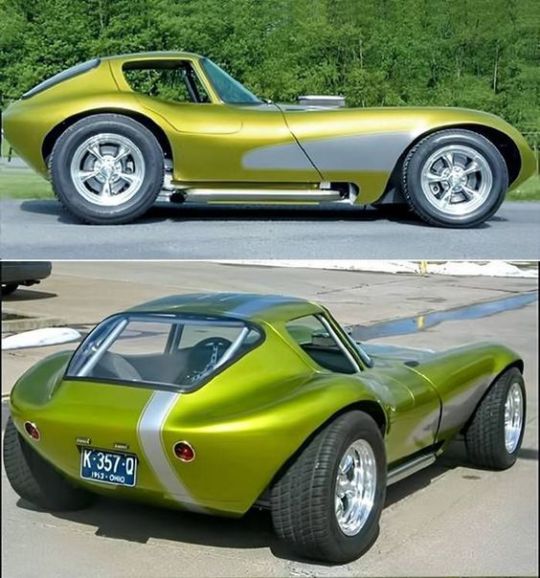
Born from Rivalry:
In the early 1960s, the Cobra was tearing up tracks and stealing headlines. Chevrolet couldn’t stand the sting of defeat, so they turned to Bill Thomas, a legendary Corvette expert with a reputation for tinkering. Thomas’ mandate was simple: build a car that could devour Cobras whole.

Unleashing the Beast:
The Cheetah was a radical departure from the curvy Corvette. Forget rounded fenders; this beast was all sharp angles and aerodynamic efficiency. A lightweight fiberglass body clothed a modified Corvette chassis, powered by a monstrous 375-horsepower small-block V8. Independent suspension and NASCAR-inspired brakes promised razor-sharp handling and brutal stopping power.
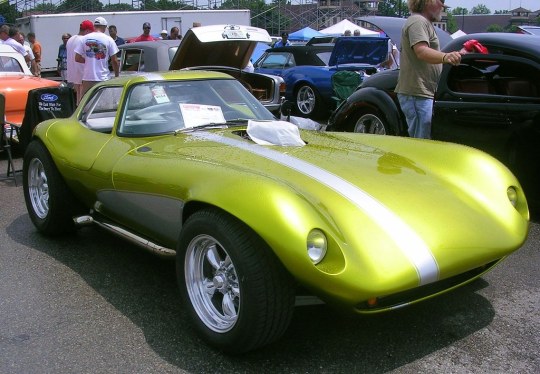
Taming the Cat:
But the Cheetah was a fickle beast. Its lightweight construction and raw power made it unforgiving at the limit. Steering was twitchy, and the unforgiving suspension demanded a skilled hand on the wheel. This wasn’t a car for Sunday drives; it was a high-wire act on four wheels, reserved for experienced racers with nerves of steel.
A Taste of Victory:
Despite its wild temperament, the Cheetah tasted victory. A few privateer teams managed to outmaneuver and outrun Cobras on smaller tracks, proving Thomas’ concept had merit. But factory support fizzled out due to high costs and safety concerns, and only 25 Cheetahs were ever built.
Leaving a Legacy:
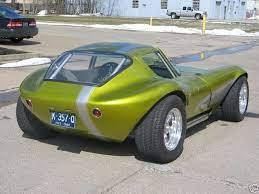
The Cheetah’s life was short, but its impact is undeniable. It proved that American manufacturers could build serious race cars to rival the best Europe had to offer. It pushed the boundaries of design and performance, even if it wasn’t always easy to control. And it cemented Bill Thomas’ reputation as a master car builder with a penchant for the audacious.

More Than a Machine:
Today, the Chevrolet Cheetah is a coveted collector’s item, a piece of automotive history frozen in time. Owning one is like owning a piece of racing DNA, a reminder of a time when cars were raw, brutal, and exhilarating. The “Killer Cobra” might have a reputation for being untamable, but for those brave enough to handle it, it offers an unmatched experience, a chance to dance with a legend on four wheels.
So, the next time you hear the name “Cheetah,” remember it’s not just a car. It’s a roar of defiance, a testament to innovation, and a reminder that sometimes, the greatest rewards come from taming the wildest beasts. Remember, the Cheetah might be gone, but its spirit lives on, a fire-breathing phantom on the racetracks of our imagination.
543 notes
·
View notes